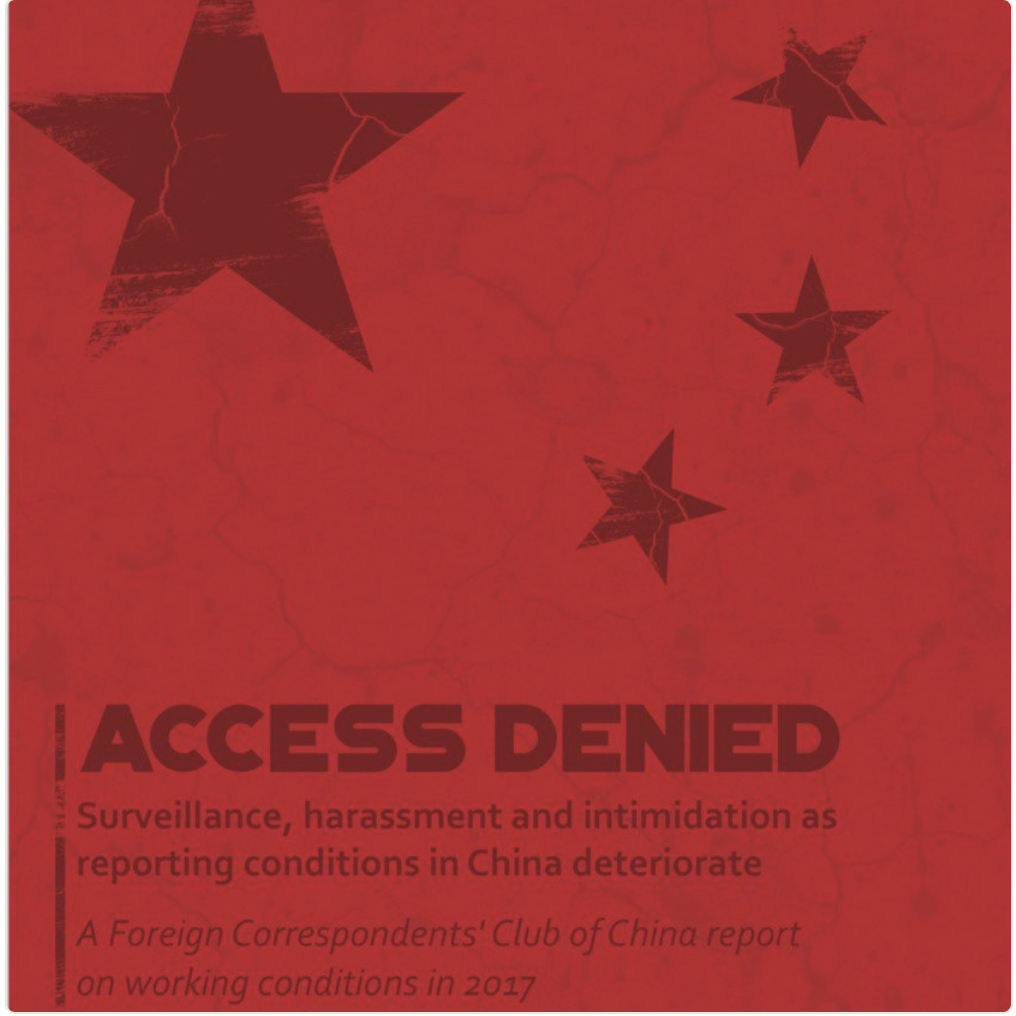The newly-released results of an annual Foreign Correspondents’ Club of China survey show that the working conditions for China-based foreign correspondents significantly declined last year, with reporters facing increased detainment, harassment, and obstruction while reporting. The AFP summarizes the findings of the most recent FCCC survey:
Almost half of more than 100 correspondents were subjected to some form of interference in 2017 while attempting to gather information, according to the report by the Foreign Correspondents’ Club of China.
Twenty-three per cent said they were physically obstructed from accessing a location and 8 per cent said they were manhandled or beaten.
[…] The FCCC said the results “provide strong evidence to suggest that, from an already very low baseline, reporting conditions are getting worse”.
The survey found that authorities stepped up the threat of not renewing journalist visas in an effort to convince media outlets to write more favourable reports. [Source]
The survey results also show that correspondents experienced increased difficulty reporting from sensitive border, industrial, and ethnic minority regions. The Hong Kong Free Press’ Catherine Lai reports:
Reporting became more difficult in many areas of China, but especially in Xinjiang, China’s heavily-securitised far west region, the FCCC said.
72 per cent of respondents who traveled to the region were told by officials and security agents that reporting was prohibited or restricted, compared with 42 per cent in the previous year.
[…] Other areas where respondents reported similar difficulties included: Tibetan-inhabited regions; areas near the border with North Korea; areas near Chinese borders with south-east Asian countries; and in industrial districts such as steel-producing districts. [Source]
Xinjiang is the frontline of a controversial nationwide crackdown on terrorism that began in 2014 that has been criticized for targeting members of the Uyghur ethnic minority. Canadian reporter Nathan VanderKlippe, who in 2014 won an Amnesty International media award for his reporting on Uyghur repression and violence in Xinjiang, detailed his brief August 2017 detention in Elishku, Xinjiang earlier this year.
On Twitter, former McClatchy Beijing bureau chief Tom Lasseter and Buzz Feed’s China bureau chief Megha Rajagopalan draw attention to Foreign Ministry spokesperson Hua Chunying’s well prepared response to a question on the report at her daily press conference yesterday:
Quite a moment here. China's Foreign Ministry spokesperson at yesterday's press conference: "You may raise your hand and let me know. (No hand raised) No one." https://t.co/qvctZ3SqWK pic.twitter.com/fvN3lecpzf
— Tom Lasseter (@TomLasseter) January 31, 2018
Amazing response from the Foreign Ministry, which disapproves of this "so-called report" by the "so-called organization" of foreign reporters, and claims survey doesn't, in fact, reflect opinions of any of the journalists who clearly stated their opinions. https://t.co/gTFY9gkMJz https://t.co/kMSe7kqWYN
— Megha Rajagopalan (@meghara) January 31, 2018
For more details and firsthand accounts from foreign correspondents, read the FCCC report “Access Denied: Violence, Harassment, and Bullying – Journalism in China in 2017” in full. See also prior coverage of foreign correspondents in China, via CDT.







